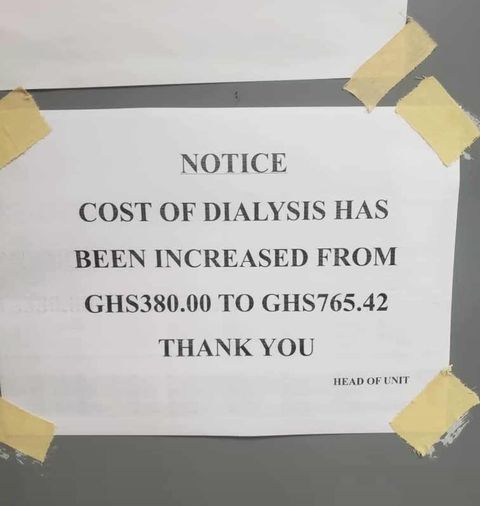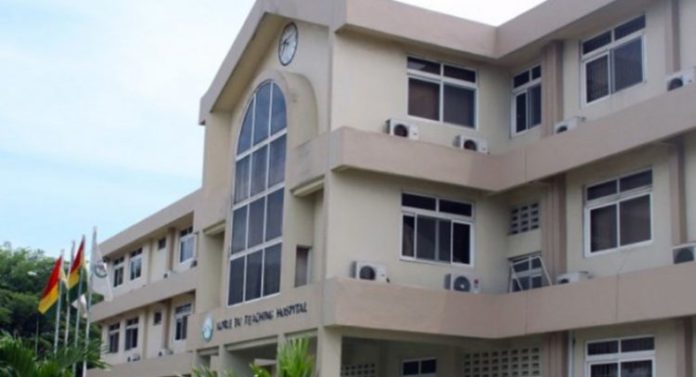The Korle-Bu Teaching Hospital (KBTH) has increased the cost of renal dialysis from GH¢380 to GH¢765.42. This has been met with outcry from the public, who are concerned about the affordability of the treatment.
Dialysis is a life-saving treatment for people with kidney failure. It removes waste products and excess fluid from the blood when the kidneys are unable to do so.
However, it is a costly treatment, and many people in Ghana cannot afford it.
In an interview with Citi News, some people who rely on dialysis treatment at KBTH expressed their concern about the price increase.
One trader said, “Even the GH¢380 they can’t afford and today you can see that GH¢765, then people are going to die. When you look at the situation even for Korle Bu to do some subsidy on this dialysis is possible because patients cannot pay even GH¢380.”
Another person said, “I got alarmed by that particular notice because I know people who go for dialysis sometimes three times a week and they need to do that 12 times in a month. So if a person has to do that 12 times a month and they have to pay in excess of 700 just to do a simple calculation. That is huge.”
“You need to have lots of money to sustain that. So that is Korle Bu signing the death sentences of persons who go to Korle Bu for dialysis.”

Some celebrities have also spoken out against the price increase. Actor and politician John Dumelo said that dialysis treatment should be under the National Health Insurance Scheme (NHIS) to make it more affordable.
In an ‘X’ post, he stressed that “Dialysis treatment should be included under the NHIS. It can be done.”
Korle-Bu has, however, disclosed that it has met with patients privately to discuss the fees. The hospital has also resumed its routine operations at the dialysis centre after receiving a consignment of renal consumables.
Mustapha Salifu, the Public Relations Officer (PRO) of KBTH explained that, the treatment interruption occurred due to contractual issues with the supplier.
“We had some contractual issues with the suppliers of the consumables that we use for renal dialysis and that caused some delay in getting the consumables imported into the country for services to our patients but thankfully last week we took delivery of the consumables and then we are starting to provide the services to patients” he said.

